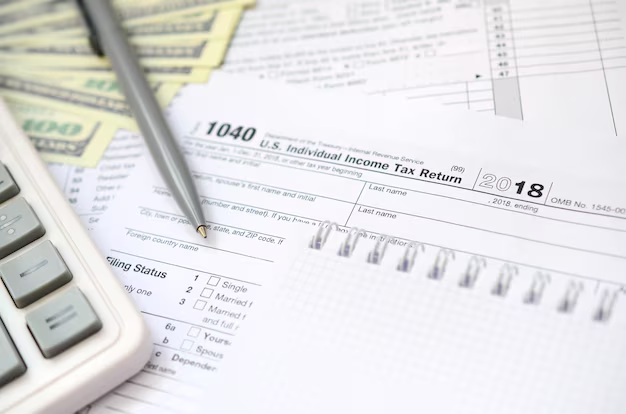Unraveling the Tax Landscape: Does Washington State Have an Income Tax?
When it comes to state taxes, each U.S. state is as unique as its geography. For residents and potential movers to Washington State, understanding the tax obligations is crucial. One of the most frequently asked questions is: Does Washington have an income tax? This question not only affects personal finances but also influences relocation decisions, retirement planning, and business operations. Dive into this comprehensive guide where we dissect Washington’s tax system, explore its implications, and offer insights into navigating this intriguing fiscal landscape.
🏞️ Washington’s Tax Structure at a Glance
To answer the burning question directly: Washington State does not have a personal income tax. This attribute makes it a standout among its peers and offers both benefits and trade-offs for its residents.
Key Attributes of Washington’s Tax System
No Personal Income Tax: Residents don't contribute to state income tax from their earnings, which can be appealing for both high earners and retirees.
Sales Tax: Washington relies heavily on sales tax to fund state services. This tax can be higher than in states with income taxes.
Business and Occupation Tax (B&O): Instead of taxing income, Washington assesses businesses based on gross receipts.
Property Tax: Residents pay property taxes, which are among the most critical local tax obligations.
💡 Why No Income Tax?
Washington’s decision to forgo an income tax stems from historical and political choices focused on attracting business and maintaining certain individual freedoms. It's a point of pride for many residents who value managing their own financial contributions to state services.
🚗 Navigating Sales and Use Taxes
While Washington lacks an income tax, it compensates with sales and use taxes. These taxes are crucial to understand for budgeting and financial planning.
Sales Tax Overview
State and Local Sales Tax: Washington levies both state and local sales taxes, with rates varying by city and county.
Goods and Services: Sales tax applies to most goods and some services, impacting everyday expenses like dining, shopping, and entertainment.
Use Tax Explained
Use tax is complementary to sales tax, ensuring that out-of-state purchases aren’t tax-free. This is critical for online shoppers and anyone purchasing large-ticket items from out-of-state retailers.
🏢 Washington’s Business Taxation: The B&O Tax
Washington employs a distinct tax known as the Business and Occupation (B&O) tax, impacting businesses operating within the state.
Understanding the B&O Tax
Gross Receipts Tax: Unlike corporate income taxes, the B&O tax is based on the gross income of the business.
Varied Rates: Rates differ depending on the type of business, with classifications for retail, wholesale, and service industries, among others.
Implications for Businesses: This tax can challenge small businesses, highlighting the importance of financial strategy and planning.
🏡 Property Taxes: Another Piece of the Puzzle
While personal income may escape taxation, property within Washington does not. Property taxes are managed locally and are substantial in funding public services like education.
Key Features of Washington Property Taxes
Local Control: Counties assess property taxes, leading to variance in tax rates and valuations.
Education Funding: A significant portion supports local schools, making it a vital component for communities.
Exemptions & Reductions: Washington offers certain property tax exemptions, particularly for veterans and seniors, which can provide relief to eligible property owners.
📚 Implications for Residents and Relocators
The absence of a personal income tax doesn't mean a lower overall tax burden. Understanding the broader tax landscape is essential, especially for new residents or those planning a move.
Benefits of Living in a No-Income-Tax State
Potential Savings: Keep more of your earnings, which can be particularly beneficial for high-income earners and retirees looking to preserve wealth.
Attractiveness for Businesses: Favorable conditions for business relocation and operations, appreciating the lack of income-tax overheads.
Considerations for Prospective Residents
Cost of Living: Higher sales and property taxes can offset some personal income tax savings.
Diverse Economic Impact: The reliance on consumption taxes can disproportionately affect lower-income individuals.
📊 Visual Summary: Washington's Tax Takeaways
Here’s a quick visual guide to help distill these insights into actionable understanding:
| Aspect | Key Takeaway 🎯 |
|---|---|
| Income Tax | None - Retain more of personal earnings |
| Sales Tax | Key revenue source, generally higher rates |
| B&O Tax | Gross receipts-based, affects business finances |
| Property Tax | Significant local funding source |
| Use Tax | Ensures out-of-state purchases are taxed |
📈 Planning Ahead: Strategy Over Rhetoric
The unique tax environment in Washington requires strategic planning. Here are ways to approach your financial management:
Optimize Spending: Be mindful of sales taxes when making large purchases. Consider tax-free shopping trips tactically.
Property Considerations: If you own property or plan to purchase, understand local tax implications and explore any available exemptions.
Evaluate Business Strategy: For business owners, adapt to the B&O tax, optimizing for deductions and managing potential impacts on cash flow.
🌟 Closing Insight
Washington's approach to taxation is both intriguing and complex, offering both opportunities and challenges. By understanding these nuances, residents and businesses can make informed decisions about living and operating in the Evergreen State. Embracing this knowledge allows for better financial planning and a more strategic approach to leveraging the state's fiscal policies for personal and professional gain.
This guide skims the surface of Washington's tax landscape, offering foundational knowledge to navigate the intricacies of living in a no-income-tax state. Whether you’re considering relocation, starting a business, or simply planning your finances, understanding these dynamics is crucial for success and satisfaction in Washington.

Related Topics
- a Sales Tax Is a Type Of
- a Tax Exemption
- Am I Tax Exempt
- Are 401k Contributions Tax Deductible
- Are 529 Contributions Tax Deductible
- Are 529 Plan Contributions Tax Deductible
- Are Association Fees Tax Deductible
- Are Attorney Fees Tax Deductible
- Are Campaign Contributions Tax Deductible
- Are Charitable Donations Tax Deductible
